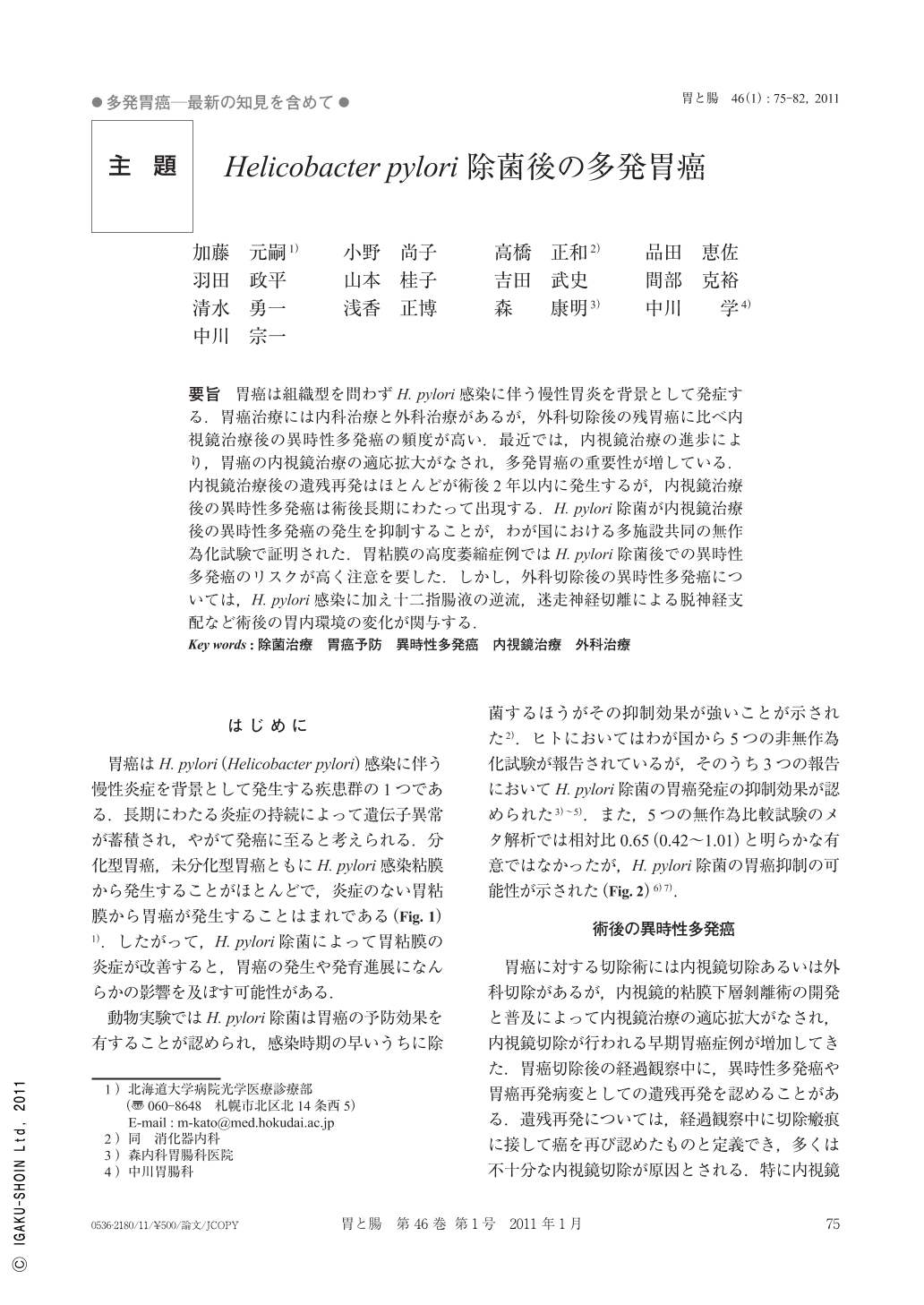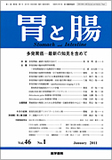Japanese
English
- 有料閲覧
- Abstract 文献概要
- 1ページ目 Look Inside
- 参考文献 Reference
- サイト内被引用 Cited by
要旨 胃癌は組織型を問わずH. pylori感染に伴う慢性胃炎を背景として発症する.胃癌治療には内科治療と外科治療があるが,外科切除後の残胃癌に比べ内視鏡治療後の異時性多発癌の頻度が高い.最近では,内視鏡治療の進歩により,胃癌の内視鏡治療の適応拡大がなされ,多発胃癌の重要性が増している.内視鏡治療後の遺残再発はほとんどが術後2年以内に発生するが,内視鏡治療後の異時性多発癌は術後長期にわたって出現する.H. pylori除菌が内視鏡治療後の異時性多発癌の発生を抑制することが,わが国における多施設共同の無作為化試験で証明された.胃粘膜の高度萎縮症例ではH. pylori除菌後での異時性多発癌のリスクが高く注意を要した.しかし,外科切除後の異時性多発癌については,H. pylori感染に加え十二指腸液の逆流,迷走神経切離による脱神経支配など術後の胃内環境の変化が関与する.
Almost all gastric cancers develop from a background of H. pylori infection of the gastric mucosa. The treatment of gastric cancer is divided into endoscopic and surgical resection. The incidence of metachronous gastric cancer after removal of primary cancer is higher in endoscopic resection than in surgical resection. Since the development of endoscopic technique has expanded the indication for endoscopic treatment for early gastric cancer, multiple gastric cancers have become an important issue. Almost all residual cancers occur within 2years after endoscopic resection, but metachronous gastric cancers continue to occur for a long time after endoscopic treatment for primary cancer. Multi-center, randomized controlled trials in Japan reported that H. pylori eradication has significantly reduced the incidence of metachronous gastric cancers after endoscopic resection. Severe atrophy is a high risk factor for metachronous gastric cancer after successful eradication. Regarding remnant stomach cancers, the risk of these cancers is associated with not only H. pylori infection but also with intragastric circumstances after surgical resection such as reflux of duodenal juice and vagotomy.

Copyright © 2011, Igaku-Shoin Ltd. All rights reserved.


